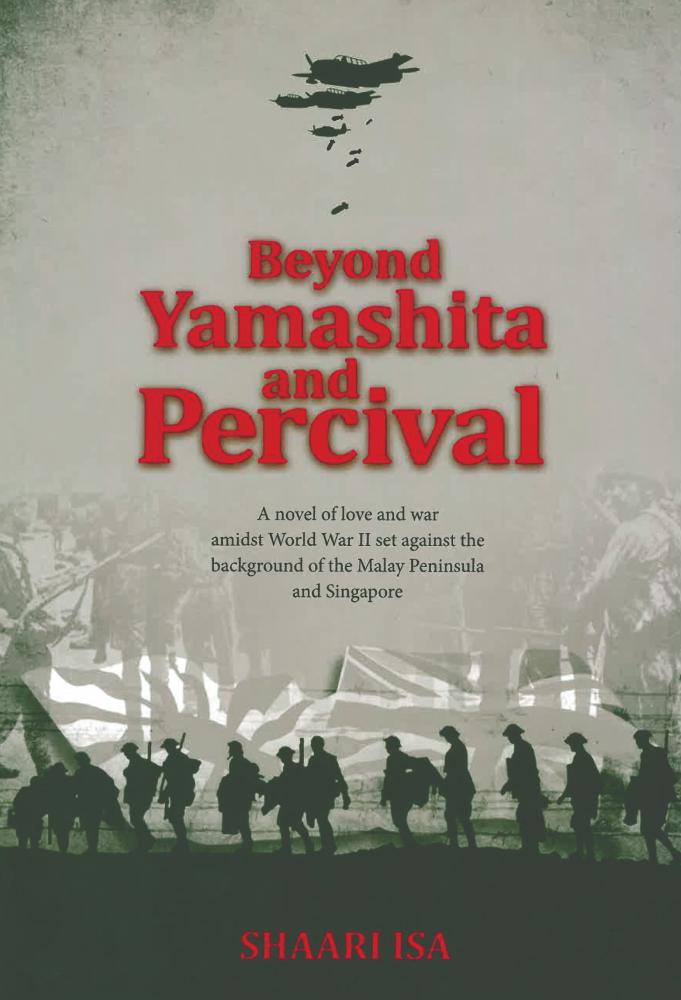By MARGARET CHANG
Wars as reported by the media or written in books rarely discussed in detail the cost of human lives even though that is the greatest cost of any conflict.
Particularly in today’s world, where wars can be conducted afar from its targets by high-tech, remote control weapons, killing has become totally dehumanised.
Shaari Isa’s historical fiction Beyond Yamashita and Percival (published by Institute Terjemahan & Buku Malaysia) about World War II fought in Malaya, allows the reader to experience the tension, the horror, pain and anguish of war through the personal perspectives of the characters in the story. Detailed descriptions of characters, locations and first-person conversations create a riveting sense of immediacy of time and place.
Whether it’s in the exclusive social environment of the elite expat community or in the egalitarian coffee shops where Chinese gangsters plot their plans, Shaari immerses the reader into the multi-faceted society of that era, stirring one’s curiosity about each of the character’s life.
Against the backdrop of the impending World War II and the Japanese Occupation, the reader is drawn into the personal conflicts of the relationships between man and wife, man and lover, mother and son and the ersonal acrifices made by young soldiers for the sake of the nation. Their personal lives mirror the uncertainties, anxieties and the tough, do or die decisions that have to be made in a war.
It was also interesting that the reader gets an insight into the thought processes of the commanders of both sides of the war, the British who were supposed to protect Malaya and the Japanese who set out on their patriotic cause to conquer Asia.
While the expat women Hazel and Lily agonised over the absence of their lovers, he greater sacrifices are portrayed through the various characters: Ah Kee, the gangster and communist leader, who sacrificed his life for the safety of his mother, the two young soldiers from India, Premlal and Kuldip, gave their lives defending a foreign country they know little about, Korean Japanese Jong Su, conscripted to the Japanese army, fought a war against his own instincts, and Mat and his wife, who lost their only child in a bomb attack, heroically risked their lives giving shelter to their former expat employer James during the Japanese Occupation.
Through the characters, Shaari also subtly raises the seemingly insurmountable issues of differences in religion, race and social backgrounds which, however, were overcome with open minds and open hearts.
And amidst the personal turmoil of each of the characters, are accounts of the nascent development of Malay nationalism, the uprising of the Chinese Communist movement to fight against the Japanese Occupation and the economic migration of the Indians, all of which combine to give the novel an insightful, multi-layered, historical narrative.
At the core of the story it is love, selflessness, kindness and empathy rather than hostility, confrontation and combat that would bring hope and harmony for a better world.
The novel, written originally in Bahasa Malaysia, was translated into English in an easy-to-read, straightforward prose which any student or adult could read to give them a wider and deeper dimension to the historical facts of Malaysia’s recent history. In another word, this historical fiction, rich in details and with some of the characters drawn from real life such as General Tomoyuki Yamashita, Lieutenant-General Arthur Ernest Percival, Tunku Abdul Rahman, Mohamad Khir Johari and others, makes history comes alive.
Shaari’s well-constructed novel not only narrates history but also imparts the greater good of the human spirit when pitched against sacrifice and love, life and death.













